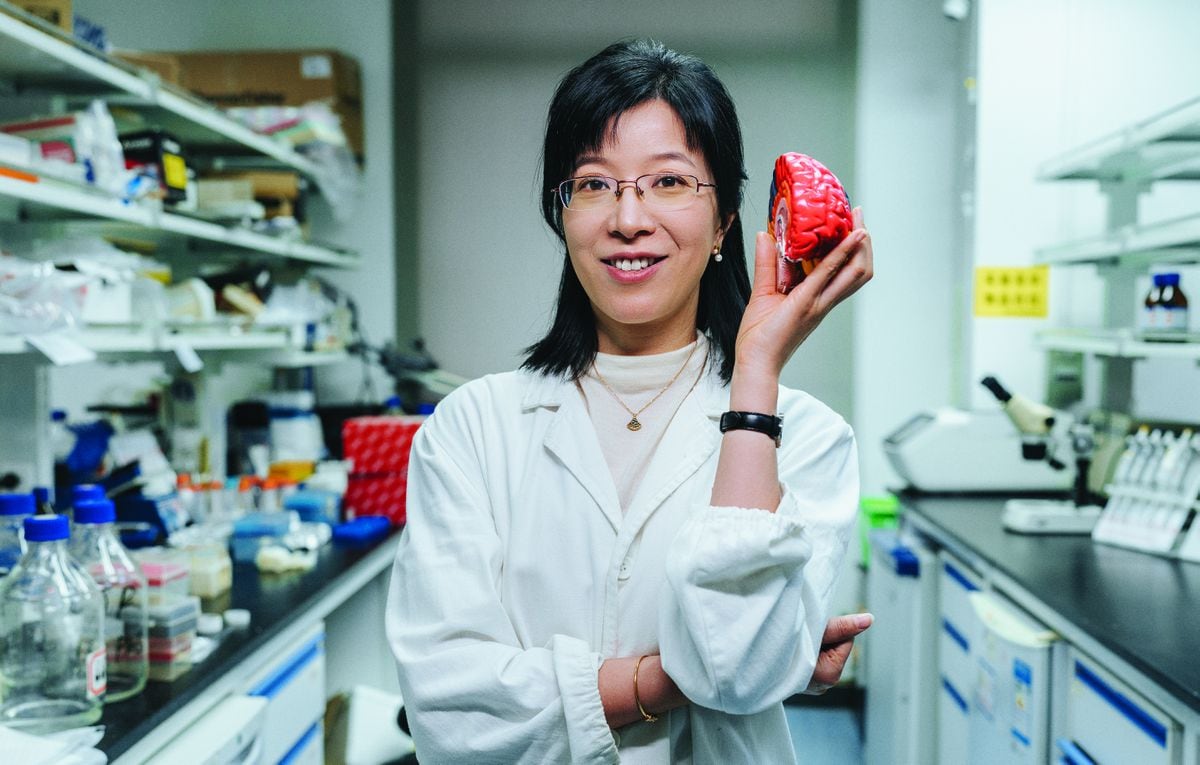Ketamine began to be used in the 1960s as an anesthetic in operating rooms and on battlefields, as well as being a recreational drug consumed at parties.
"But, about 20 years ago, a team of scientists in the United States accidentally discovered that in very low doses it can rapidly improve the mood of depressed patients," explains Hailan Hu, professor and executive director of the Center for Neuroscience at the Faculty. of Medicine from Zhejiang University (China).
This 48-year-old scientist, winner of the international L'Oréal-UNESCO '
For Women in Science
' 2022 award for Asia and the Pacific, investigates the effect of ketamine on an area of the brain called lateral habenula: "It is a tiny part, but it plays a fundamental role in negative emotions such as stress, fear or disappointment."
Researchers commonly refer to this area as the “anti-reward center” because it blocks the reward areas of the brain that release dopamine and serotonin—two neurotransmitters associated with pleasure.
During depression, "the habenula becomes overly active, which suppresses reward and causes moodiness or depressive states."
That's where ketamine comes in, which "directly affects activity in that region of the brain."
If this drug stands out for something, according to Hu, it is for its ability to quickly reduce the symptoms of depression compared to traditional antidepressants.
This is what the expert indicates: "Compared to the six or eight weeks that classic drugs can take to improve mood, ketamine can take effect in just one hour."
More information
Why are we getting more and more depressed?
While several trials have been conducted with ketamine in the last two decades, some agencies such as the United States Food and Drug Administration (FDA) and the European Medicines Agency (EMA) ) have given the green light to esketamine, an antidepressant derived from ketamine in the form of a
nasal
spray .
But ketamine also has some drawbacks.
As the neuroscientist points out, it can cause side effects.
In addition to possible bladder problems, it has addictive properties.
"That's why the doses used to treat depression are very low," she says.
A review published in 2018 in
The Lancet Psychiatry.
indicates that more large-scale clinical trials are still needed to assess the long-term safety of using ketamine to treat this disease.
By studying its effect on the brain, Hu hopes to better understand how depression affects this organ: "Maybe then we can find other drugs and new compounds that have the same rapid antidepressant effects, but with fewer side effects."
For her, "the brain is possibly the most complex system in the universe."
Hundreds of scientists have tried to unravel the mechanisms of depression.
"There is a popular hypothesis that this disease is due to an imbalance of brain chemicals or a lack of dopamine or serotonin," she says.
Most classic antidepressants, according to the neuroscientist, have been designed according to this hypothesis and try to increase the level of these substances.
But "the fact that these drugs work so slowly suggests that this is probably not a direct mechanism, but rather that they are acting indirectly."
The impact of the pandemic on mental health
5% of the world's adult population suffers from depression, according to the World Health Organization (WHO).
Several investigations analyze the impact of the pandemic on mental health.
A meta-analysis published in the scientific journal
Psychiatry Research
concludes that the prevalence of depression symptoms in populations affected by covid-19 is more than three times higher (15.97%) than in the general population (4.4%) .
"Uncontrollable stress is a very important factor that can induce this disease," explains Hu.
During the pandemic, millions of people around the world have had to deal with situations beyond their control: “From confinement to loss through financial problems”.
But depression does not affect everyone equally.
“This is what we call resilience.
There are people who can experience the same amount of stress, but some are more resistant and others more vulnerable, "says the expert.
In addition to a possible genetic predisposition, Hu points out that previous experiences can make a difference: “If you have already experienced some challenge or a mild form of stress early in your life, it is something that can help you to be more resilient and develop a certain resilience against depression.
The neuroscientist's advice to prevent the disease is to exercise, meditate and receive more sunlight.
“Sun exposure can reduce the likelihood of the anti-reward center becoming overactive in the same way that ketamine does,” she says.
In his day-to-day life, to manage stress, Hu also tries to lower her expectations: "If they are too high and you can't reach them, they can be a trigger for bad mood."
In some parts of the world, he stresses, depression is still taboo and underdiagnosed.
Although “more education is needed”, he considers that progress has been made in recent years.
"Before, people thought that it was a psychological problem that you had to overcome on your own, but more and more people realize that it is a disease of the brain and must be treated like those of other parts of the body," he concludes.
You can follow
MATERIA
on
,
and
, or sign up here to receive
our weekly newsletter
.

